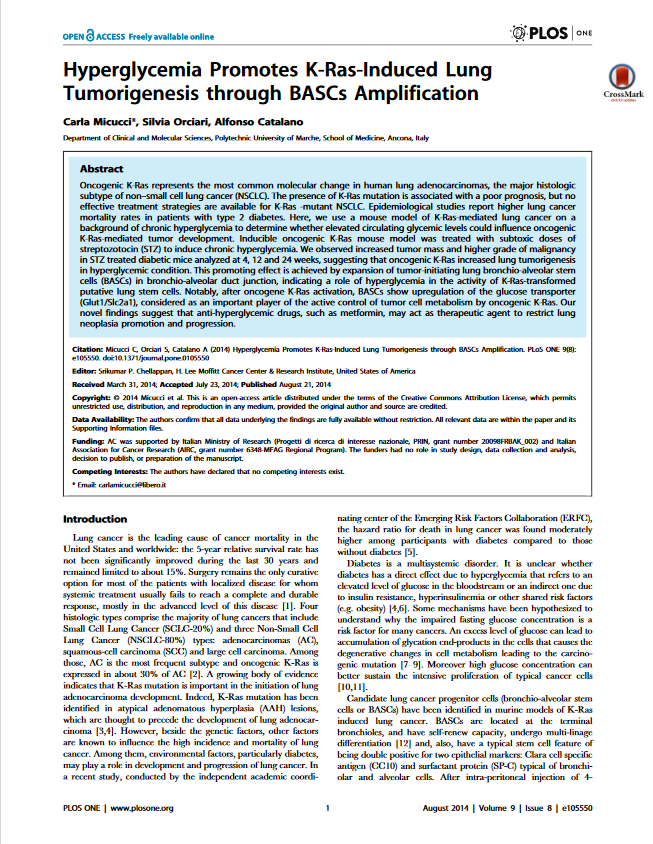30.10.2023
Hyperglycemia Promotes K-Ras-Induced Lung Tumorigenesis through BASCs Amplification
PLOS ONE, 2014
Oncogenic K-Ras represents the most common molecular change in human lung adenocarcinomas, the major histologic subtype of non–small cell lung cancer (NSCLC). The presence of K-Ras mutation is associated with a poor prognosis, but no effective treatment strategies are available for K-Ras -mutant NSCLC. Epidemiological studies report higher lung cancer mortality rates in patients with type 2 diabetes. Here, we use a mouse model of K-Ras-mediated lung cancer on a background of chronic hyperglycemia to determine whether elevated circulating glycemic levels could influence oncogenic K-Ras-mediated tumor development. Inducible oncogenic K-Ras mouse model was treated with subtoxic doses of streptozotocin (STZ) to induce chronic hyperglycemia. We observed increased tumor mass and higher grade of malignancy in STZ treated diabetic mice analyzed at 4, 12 and 24 weeks, suggesting that oncogenic K-Ras increased lung tumorigenesis in hyperglycemic condition. This promoting effect is achieved by expansion of tumor-initiating lung bronchio-alveolar stem cells (BASCs) in bronchio-alveolar duct junction, indicating a role of hyperglycemia in the activity of K-Ras-transformed putative lung stem cells. Notably, after oncogene K-Ras activation, BASCs show upregulation of the glucose transporter (Glut1/Slc2a1), considered as an important player of the active control of tumor cell metabolism by oncogenic K-Ras. Our novel findings suggest that anti-hyperglycemic drugs, such as metformin, may act as therapeutic agent to restrict lung neoplasia promotion and progression.
IHC-plus(TM) Insulin Antibody LS-B2526 manufactured by our partner LSbio is featured in this study.


